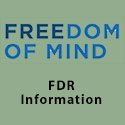This is the fifth article of a five-part series. Part One is here.
 What’s a god to do?
What’s a god to do?
So.
Did he do it?
Did Molyneux reclaim the high ground and prepare libertarians to win the argument from morality—the intentions he stated in his 2005 article?
I don’t think so, for a very interesting reason. It has to do with god. Or, specifically, what Molyneux doesn’t understand about the nature of god.
Personally, it doesn’t matter to me if people want to believe in god(s) so long as they don’t make a nuisance of themselves, especially when I’m trying to read. But even though I can’t join them in that belief, it doesn’t mean I’ll also remain ignorant, as Molyneux clearly has, of the role god(s) have played in the development of mankind.
Far too many atheists dismiss the subject of religion, as Molyneux does, by reciting a litany of atrocities committed by man in the name of god. I’ve never thought that argument has anything to do with god at all. The truth is, man can be one savage bastard and sometimes he’s just looking for an excuse. And sometimes god will suffice.
But there is the other, more important side to god(s) that many atheists have trouble acknowledging. It’s something that is as old as mankind itself.
From the very first appearance of man, god(s) have represented our unending quest for good.
To primitive man, gods were everywhere. The sacred and profane worlds had many connections. The sun, wind, weather, abundance or scarcity of food—every phenomenon that couldn’t be explained became a god. In short order, man began developing behaviors, which became rituals, to appease—actually control—the gods that surrounded him.
Atheists are fond of saying that religions were developed by man to control man and there is truth to that, but it is not the whole truth or even the main truth. When you acknowledge how god(s) evolved in the lives of primitive men, two facts emerge: First, both the concepts of god(s) as well as the behaviors, rituals, or rules we are supposed to follow on their behalf (I’ll call them god-laws, for want of a better word) developed almost simultaneously. Gods and god-laws and have been forever inextricable.
The second, more important, fact is that our earliest god-laws were quite likely not man-to-man but man-to-god. Do this dance and the rain will come. Say this chant and the hunt will be plentiful. Go to this sacred place and maybe the illness will pass. Planted in those first communal rituals that attempted to make the snow disappear and the warm weather return were the seeds of modern religion.
Of course, bad behavior—that which angers the gods—was discovered soon enough. But only after man had begun to reach for the good.
This is important. With god(s) our first reach was upward. Over time, 99.99% of the mysteries of primitive man’s gods were explained through science. But during that time, man’s reach went higher and higher, beyond what is simply a good behavior that will appease a god to what is the good. In my empirical view, this is what religion remains for modern man today—not a desire to regulate the behavior of other men, but a sincere internal reach upward to the good. I’m not ignorant of the corruption within religions, or states, or the horrors and atrocities committed in the name of religion—I simply firmly believe that it is the quest for the good, not the corruption, that drives religious people to worship.
Man, however hopelessly muddled and befuddled, foul, violent, and self-destructive, has still managed to write a history of an unceasing struggle toward goodness. It would only be a matter of time before that struggle would lead some people to seek beyond god, or a notion of a god, to imagine a state or definition of goodness (and related behaviors) that has nothing to do with gods at all. Many (though not all) of us who call ourselves atheists are not ready to accept the notion of a value-less universe. Perhaps one day we’ll discover that man’s belief in god was his stepping stone to discover the good.
And though the specific horrors and atrocities live on in history books, available as suitable fodder for sophomoric critics of religion, I believe their number pales in comparison to ever-upward reaches of religious man. And even for many of us who have moved onto other mistresses that may explain the nature of the universe—such as science—I believe the reach itself remains the same.
What does this all have to do with UPB? Unfortunately, and sadly, a very simple fact. UPB was supposed to be a rational proof of ethics, or morality. And it doesn’t come close. Nor does it have its own “god-laws”—a system or list of actual behaviors derived from it (Molyneux has said on several occasions that he has no plans of authoring such a system). The most amazing thing about UPB is how tragically short it fell from its goal.
As we saw in Part 4, critics of UPB all eventually arrive at the point—though they may express it in different ways—that Molyneux does the opposite of reaching for the good. He has a process for eliminating hypocrisy and can make it easier to identify that which is immoral, but UPB never really makes the case for morality.
Molyneux’s first article on Lew Rockwell that makes the foundational argument for UPB states:
We must take the same approach with defining and communicating morality. We must begin using the power and legitimacy of the scientific method to prove the existence and universality of moral laws. We must start from the beginning, build logically and reject any irrational or non-empirical substitutes for the truth.
What does this look like in practice? All we have to do is establish the following axioms:
- Morality exists.
- Moral rules must be consistent for all mankind.
- The more consistent a moral theory is, the more valid it is.
- Libertarianism is the most consistent moral theory.
- Therefore, libertarianism is the most valid moral theory!
Sound like a tall order? But give me three thousand or so words, and we can at least take a swing at the first three.
Neither in those three thousand words nor in the UPB book that followed, did Molyneux accomplish the first three and got nowhere close to the last two. In fact, as Danny Shahar writes:
So the biggest problem with Stefan’s morality is simply that it has nothing to do with morality. It doesn’t give us any reason to do anything, except that our doing universally preferable things is in some sense “required” (though apparently not required for anything), whatever that means.
So, what’s a god to do? Molyneux’s secular replacement god is broken, with no way to describe our moral goal, nor the path (the god-laws) to get there. So far, its main contribution to morality has been to prove that murder, rape, and theft are, by and large, bad things to do.
A nihilist’s handbook?
Probably the most incisive observation on the systemic failure of UPB comes from BrainPolice, after he had considered the various debates and critiques that occurred after the book’s publication. He captures this observation in a follow-up article published on April 15, 2009 entitled Is Stefan Molyneux A Moral Nihilist In Denial?
Molyneux has little regard for nihilism—clearly, UPB was intended to be as much a stake in the ground against that mind-set as it is against men driven by religious notions. But by failing to make his case for morality, Molyneux has inadvertently created a moral nihilist’s handbook. BrainPolice explains:
I’ve come to the realization that the logical conclusion of his UPB should in fact be moral nihilism, because it can tell us nothing about the validity of the values themselves (it can only make an analysis of compatibility between values and the consistency between one’s values and one’s actions, but it ultimately does not tell us what one “ought” or “ought not” to do; and hence it is amoral in practice).
In fact, this point is particularly illuminated by the fact that a good deal of the people who have recently turned on Molyneux (which is made up of some people in the youtube anarchist community) have dived straight into hardcore moral nihilism. This is not purely coincidental. It makes sense because they are merely taking UPB to its logical conclusion, since at the end of the day it involves no actual ethical theory at all. In the absence of any other ethical theory, once one takes UPB to its logical conclusion and realizes that it cannot actually prove or disprove any sort of moral claim, one is left with nothing.
Molyneux is fond of saying that attempting to argue against the validity of UPB is a self-detonating argument because by demonstrating that you value the search for truth, you are also affirming that universally preferred behaviors exist. (Although, as LaughingMan0x points out, Molyneux never successfully establishes “truth” as universally preferable.)
Ironically, Molyneux fails to see that UPB actually invalidates itself with its own, hidden, self-detonating argument.
Stefan Molyneux wrote a book.
He wanted it to be a rational proof of secular ethics.
In the book, he failed to identify why anyone would want to be moral.
Which, from his book’s perspective, actually proves that secular ethics aren’t really necessary.
Which means there is no reason why anyone would need to write UPB in the first place.
In the end, did Molyneux succeed only in writing the ultimate nihilist’s handbook?
-Q.E.
Click below to e-mail or DIGG, etc., this article! As always, I welcome your comments!







